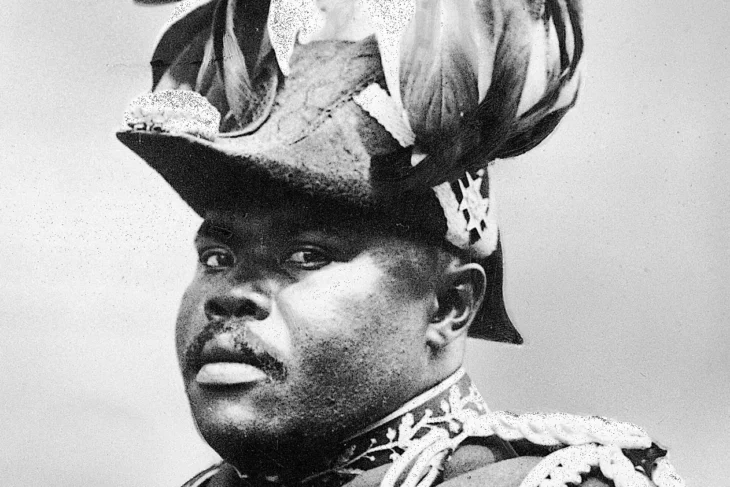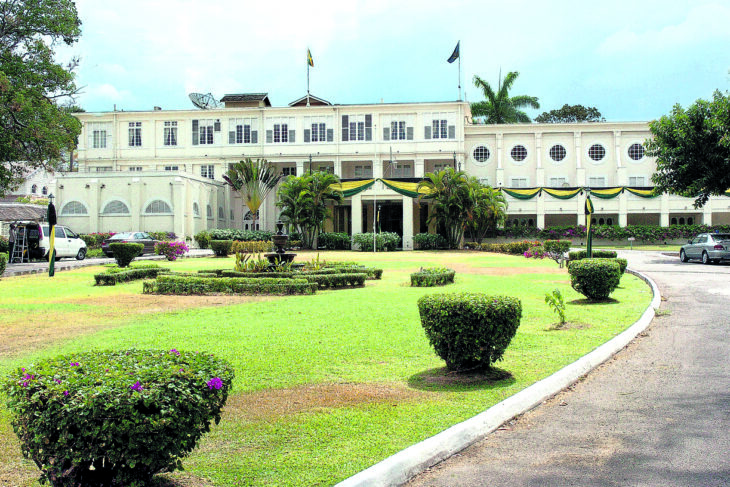
Abolish and defund the police, a phrase which is older than the George Floyd murder, has gained much more airplay since his heinous killing. It is a phrase and movement which has, it seems, found roots in Jamaica especially since the slaying of Susan Bogle.
These are powerful statements which I find myself agreeing with. What are the police after all if not the enforcers of state violence? This statement, though jarring at first, is easily accepted once the list of police abuses in the last year (not to mention the litany of abuses carried out since Independence) is mentioned. Who could disagree that the force which wantonly shoots a pregnant woman without reprimand, either from the Jamaica Constabulary Force (JCF) or the state via the Director of Public Prosecutions (DPP), is the enforcer of state violence?
But they are more than simply the enforcers of state violence, they are the enforcers of capitalist violence as it is they who control the state.
A police force of any sort and by any name is needed in such a state as ours, a capitalist one. Someone, after all, must keep the masses of have nots from the few haves who dominate our lives (seen or unseen). The JCF’s motto ‘Protect, Serve, and Reassure’ is true and held dearly. But the motto is not aimed at the have nots, rather it is aimed at the haves, the landed gentry, industrial tycoons and finance barons, to protect serve and reassure them that an 1865 style revolt never takes place again.
There is talk that the police force does more than protect private capital and its owners. That may be the case, but that always is secondary to their primary function of protecting the existing system. The current system, the capitalist system, is built on and is only possible because of private capital, and private property and the police, a force created by the political masters of the system, ensure that the rabble interrupt as little as possible and are reprimanded when they step out of line. Evidence and examples of this are legion.
A person who, for example, murders someone in broad daylight (a crime which invariably is poor on poor) almost never gets caught and thrown into jail. But if a person defrauds the bank (an institution which represents and is owned by the barons of capitalism), they are found and often quickly have the book thrown at them.
Praedial larceny is common and mainly affects the small to medium farmers. Almost no one is arrested. But when a man picked fruit from the Governor General’s residence (the very embodiment of this capitalist state) he saw a judge and prison at such a pace that people didn’t even have enough time to mount a decent civil protest on his behalf. It confirmed to the small farmers once again that their lot is their own to bear as the police have no time for them.
In such an environment as Jamaica’s the police force cannot be abolished or defunded, for who then protects private property? The police force in this country cannot be gotten rid of, no matter how much the masses may want it because the system which we live under does not and will not allow it. If we did, then what we would be left with are private and empowered militias, probably formed from existing security companies, who are at the beck and call of any monied individual who can pay up.
Any thought of police abolition must be preceded by the actual destruction of the current system and implementing one which negates the primary reason for the police, the protection of private property (the thing which underpins the system we live under). This abolition must be acknowledged as a long-term goal only achievable once the class system and the state needed to regulate it have disappeared, anything else is simply reform.
Even then, in a society without private property, without the domination of capitalism, a police force of some form would be needed. Take the examples of Cuba, China, Vietnam, and Venezuela. These are nations where the have nots have power and have had it for some time. Even in these countries we see police forces and the need is understandable as they must still deal with the remnants of the old ruling system, counter revolutionaries, and spies (all of which are real threats). The difference between their police force and ours is stark, because with the majority policing the minority it is easier and more palatable.
With a small force aimed at counter revolutionary activities, more funds, manpower, training, and time can be placed in the social services, areas which really need to be tackled if things such as crime are to be eradicated. With the have nots in power, masses of resources would no longer be needed for what is essentially control through intimidation, instead they could be allocated to areas which, in the end, nip crime in the bud. Areas such as early education, skills training, housing, food security could all be addressed if the resources were re-directed and the wealth in the country (cash and infrastructure) becomes public property.
With a smaller force aimed at those certain threats, that then leaves massive funding and manpower available to do things which our current force cannot or will not do. We could investigate and bring charges against rapists, child molesters and kingpins of crime. We could actually afford to engage in a real form of community policing because not only would the force come from us and reflect us, but they would also be answerable to us, the masses, who would be in power.
Abolition of the police in Jamaica is a noble goal, it is one I wholeheartedly support, but much like communism it is not something I expect to realistically see in my lifetime. This does not lessen the need for the cause. In some ways it actually makes pushing for its abolition even more necessary, but we may not be seeing the end results.
We can however lay the foundation for a movement which, in the end, can and does abolish the police in Jamaica. Such foundational changes and steps are within our grasp and would make the task of police and even prison abolition something more tangible. We can create a society where private property is no longer the grease for the wheels of life. In doing so we would have already greatly reformed the role of the police as the protector of private property, and by extension its owners. If we build a community centred society where a person on the wrong track is caught early and is placed on the right track, then another major need of the police (arresting people who have gone bad) is gone.
Any other reform is simple window dressing and, as I say, demanding defunding or abolition now would leave us in an even worse situation as private capital would simply unleash unrestricted force on the people.
The destruction of this society which operates on winners and losers, on haves and have nots is the first major change we must make if we are to trod this road of police abolition, land reform, education reform etc. Acknowledging that all parts of society have a responsibility for the security and well-being of each other and using the community as the first port of call when trouble is spotted is what we want. That can only be achieved when the have nots gain control of power. We either fight for this power and change the system or accept that nothing will change apart from uniforms and types of weapons used when abuse is dished out.




Years ago I heard that Costs Rico had a Peace Keeping force that did not use force.